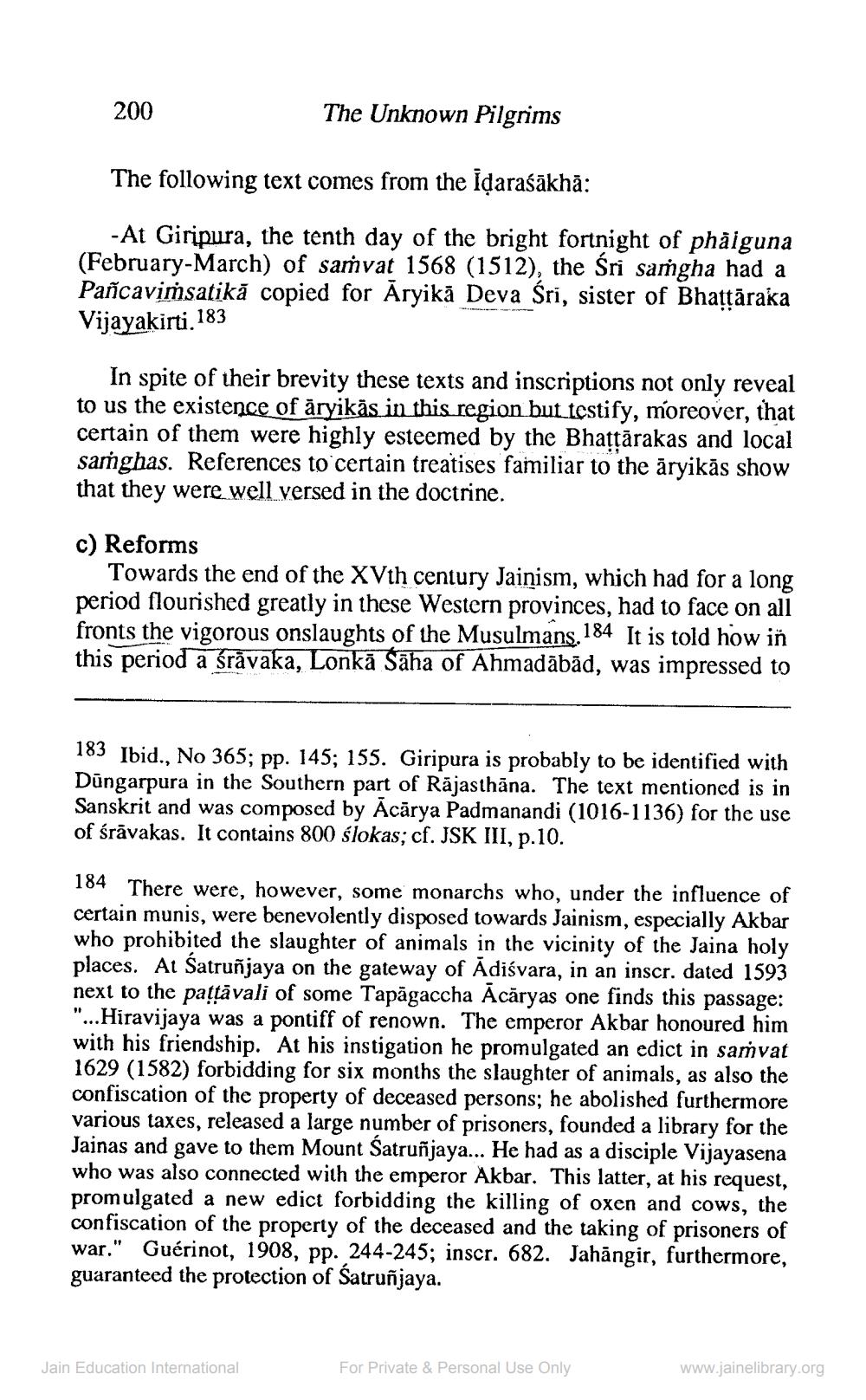________________
200
The Unknown Pilgrims
The following text comes from the Idaraśākhā:
-At Giripura, the tenth day of the bright fortnight of phảiguna (February March) of saṁvat 1568 (1512), the Sri saṁgha had a Pañcaviṁsatikā copied for Aryikā Deva Śrī, sister of Bhattāraka Vijayakirti.183
In spite of their brevity these texts and inscriptions not only reveal to us the existence of āryikās in this region but testify, moreover, that certain of them were highly esteemed by the Bhattārakas and local samghas. References to certain treatises familiar to the āryikās show that they were well versed in the doctrine.
c) Reforms
Towards the end of the XVth century Jainism, which had for a long period flourished greatly in these Western provinces, had to face on all fronts the vigorous onslaughts of the Musulmans. 184 It is told how in this period a śrāvaka, Lonkā Sāha of Ahmadābād, was impressed to
183 Ibid., No 365; pp. 145; 155. Giripura is probably to be identified with Dungarpura in the Southern part of Rājasthāna. The text mentioned is in Sanskrit and was composed by Acārya Padmanandi (1016-1136) for the use of śrāvakas. It contains 800 ślokas; cf. JSK III, p.10.
184 There were, however, some monarchs who, under the influence of certain munis, were benevolently disposed towards Jainism, especially Akbar who prohibited the slaughter of animals in the vicinity of the Jaina holy places. At Satruñjaya on the gateway of Adiśvara, in an inscr. dated 1593 next to the pattāvali of some Tapāgaccha Acāryas one finds this passage: "...Hiravijaya was a pontiff of renown. The emperor Akbar honoured him with his friendship. At his instigation he promulgated an edict in samvat 1629 (1582) forbidding for six months the slaughter of animals, as also the confiscation of the property of deceased persons; he abolished furthermore various taxes, released a large number of prisoners, founded a library for the Jainas and gave to them Mount Satruñjaya... He had as a disciple Vijayasena who was also connected with the emperor Akbar. This latter, at his request, promulgated a new edict forbidding the killing of oxen and cows, the confiscation of the property of the deceased and the taking of prisoners of war." Guérinot, 1908, pp. 244-245; inscr. 682. Jahangir, furthermore, guaranteed the protection of Satruñjaya.
Jain Education International
For Private & Personal Use Only
www.jainelibrary.org




